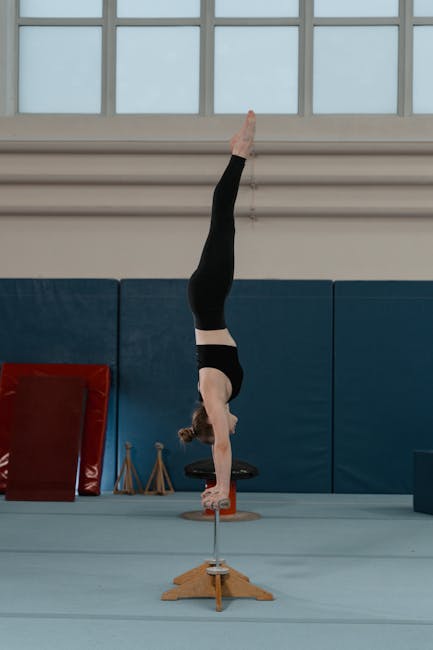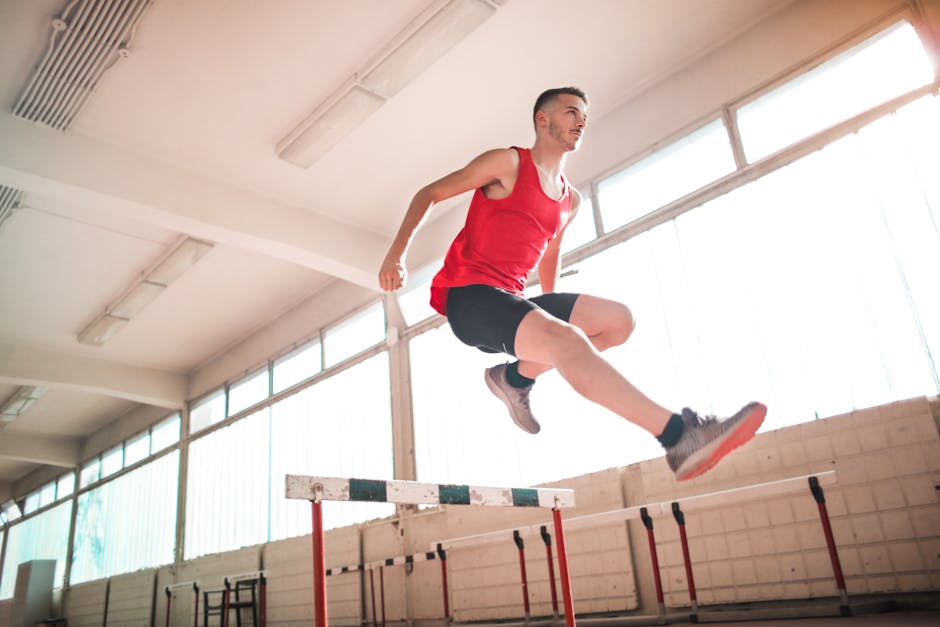Introduction
Athletic performance is a complex concept that involves more than just physical prowess. It’s a blend of physical conditioning, mental toughness, proper nutrition, and adequate rest. The importance of athletic performance extends beyond the realm of professional sports. It’s crucial for anyone who wants to improve their physical abilities, whether for personal satisfaction, competitive sports, or general health and fitness.
Several factors influence athletic performance, including genetics, training, nutrition, mental state, and recovery strategies. While genetics may set the stage, it’s the other factors that truly determine an athlete’s performance. Understanding these factors can help individuals optimize their athletic potential, regardless of their genetic makeup.
Let’s delve deeper into these factors and explore how you can enhance your athletic performance. We’ll discuss the role of nutrition and hydration, training and conditioning, mental preparation, recovery and rest, and performance-enhancing techniques. Each of these elements plays a crucial role in achieving #PeakPerformance.

Photo by Tima Miroshnichenko on Pexels
Nutrition and Hydration
Proper nutrition is the fuel that drives athletic performance. It provides the energy needed for training and recovery, and it supplies the necessary nutrients for muscle growth and repair. A balanced diet rich in protein, carbohydrates, and healthy fats is essential for optimal performance. Additionally, certain micronutrients, such as iron and calcium, play a crucial role in athletic performance.
Hydration is another critical aspect of athletic performance. Water regulates body temperature, lubricates joints, and helps transport nutrients for energy and health. Dehydration can significantly impair performance and lead to serious health issues. Therefore, athletes should ensure they are adequately hydrated before, during, and after exercise.
Here’s a simple table outlining the recommended daily intake of key nutrients for athletes:
| Nutrient | Recommended Daily Intake |
|---|---|
| Protein | 1.2-2.0 g/kg body weight |
| Carbohydrates | 6-10 g/kg body weight |
| Fats | 0.5-1.5 g/kg body weight |

Photo by Tima Miroshnichenko on Pexels
Training and Conditioning
Training and conditioning are the cornerstones of athletic performance. They enhance strength, speed, endurance, and flexibility, all of which are crucial for optimal performance. There are various types of training methods, including resistance training, endurance training, flexibility training, and speed and agility training. The choice of training method depends on the athlete’s specific goals and the demands of their sport.
Strength and conditioning programs are particularly important. They not only improve athletic performance but also reduce the risk of injury. These programs typically involve a combination of resistance training, plyometrics, speed and agility drills, and flexibility exercises.
Here are some key components of an effective strength and conditioning program:
- Periodization: This involves varying the training program at regular intervals to prevent plateaus and continue making progress.
- Specificity: The training program should be tailored to the specific demands of the athlete’s sport.
- Overload: The athlete should continually challenge themselves by increasing the intensity, duration, or frequency of their workouts.
- Recovery: Adequate rest and recovery are crucial to allow the body to repair and strengthen itself.

Photo by Andrea Piacquadio on Pexels
Mental Preparation
Mental preparation is just as important as physical preparation in athletic performance. Psychological factors such as motivation, confidence, focus, and resilience can significantly impact performance. Athletes who are mentally strong are better able to handle pressure, stay focused, and perform at their best, even in challenging situations.
There are various strategies for enhancing mental toughness and focus. These include goal setting, visualization, mindfulness, and positive self-talk. For instance, practicing positive self-talk can help athletes maintain a positive mindset and overcome challenges during competition.
Another effective strategy is breath counting, a simple mindfulness exercise that can help athletes stay focused and calm under pressure. Here’s a simple guide on how to do it:
- Sit in a comfortable position with your eyes closed.
- Take a few deep breaths to relax your body and mind.
- Start counting your breaths. Count “one” as you inhale, “two” as you exhale, “three” on the next inhalation, and so on, up to “ten”.
- Once you reach “ten”, start over at “one”.
- If you lose count or get distracted, simply start over at “one”.
Recovery and Rest
Rest and recovery are essential for optimal athletic performance. They allow the body to repair and strengthen itself after the stress of training or competition. Without adequate recovery, athletes risk overtraining, which can lead to decreased performance and increased risk of injury.
There are various techniques for effective recovery and injury prevention. These include proper nutrition, hydration, sleep, and active recovery strategies such as light exercise and stretching. Additionally, techniques like massage and foam rolling can help relieve muscle tension and promote recovery.
Here are some tips for effective recovery:
- Get plenty of sleep: Aim for 7-9 hours of sleep per night.
- Eat a balanced diet: Ensure you’re getting enough protein, carbohydrates, and healthy fats.
- Stay hydrated: Drink plenty of water throughout the day, especially before, during, and after exercise.
- Practice active recovery: Light exercise and stretching can help promote blood flow and speed up recovery.
Performance-Enhancing Techniques
There are various legal methods for improving athletic performance. These include proper training and conditioning, nutrition and hydration, mental preparation, and recovery strategies. Additionally, certain supplements, such as creatine and beta-alanine, have been shown to enhance performance in certain sports.
However, it’s important to consider the ethical implications of performance enhancement. While it’s natural to want to improve, athletes should strive to do so in a way that respects the spirit of fair play and the integrity of their sport. This means avoiding banned substances and methods, and adhering to the rules and regulations of their sport.
Here are some legal and ethical performance-enhancing techniques:
- Proper training and conditioning
- Optimal nutrition and hydration
- Mental preparation techniques, such as goal setting, visualization, and positive self-talk
- Recovery strategies, such as proper sleep, nutrition, and active recovery
- Use of approved supplements, such as creatine and beta-alanine
Conclusion
Athletic performance is a complex concept that involves a variety of factors, including physical conditioning, mental toughness, nutrition, hydration, and recovery. By understanding these factors and implementing strategies to optimize them, athletes can enhance their performance and achieve their #FitnessGoals.
Remember, improving athletic performance is a journey, not a destination. It requires consistent effort, dedication, and a willingness to learn and adapt. So, keep pushing your limits, stay focused on your goals, and enjoy the process. #TrainHard, #EnduranceAthlete, #StrengthTraining.
Finally, always prioritize your health and well-being. Athletic performance is important, but it’s not worth compromising your health or integrity. So, train smart, eat well, rest adequately, and always play fair. Here’s to your #HealthyLifestyle and achieving your best athletic performance!



